Hiring is not easy. Advertising, sourcing, and interviewing candidates is time-consuming and costs money. As the timeline approaches to fill a position, think before an offer is made to the okay, underqualified candidate. What cost will that have on the company?
Selecting the wrong person has a cost associated with it. Unfortunately, the cost is both direct and indirect. The cost of a bad hire is much more than just calculating the recruiting costs. Hiring the wrong person affects morale and most importantly, productivity.
What does it cost a company who hires the wrong person?
There are a lot of figures out there that try to quantify the dollar amount it costs an organization when the wrong person is hired. The average value is anywhere from 30%-50% of the employee’s salary all the way to a quarter of a million dollars. A quarter of a million dollars….a substantial amount of money for any size company to swallow. Those include the costs that can be calculated such as litigation fees and recruiting and training costs for both the bad hire and the replacement hire. The dollar amount does not include the effect on morale, disruption to productivity, and possible loss of sales or customers.
The collateral damage can be tremendous, but the impact begins long before the lousy hire is dismissed. Consider the costs that a bad hire can truly have on your organization.
– Impact to Team Members: Unproductive people can have a toxic effect on the rest of the team. Team members may absorb additional roles and responsibilities, tolerate unpleasant work habits, and potentially drive good employees away.
– Customer Impact: The toll of a bad hire can affect the output of work in so many different ways. Perhaps, the hire takes shortcuts or has negative interactions with customers. Unraveling and fixing customer issues can take more time and energy than securing the initial customer relationship. Your brand could ultimately suffer at the hands of only one bad hire.
– Time Management: When the wrong person is hired then the manager is no longer focused on the task at hand. Their time is spent listening, documenting, and providing corrective feedback. The process of dismissing an unproductive hire is a long and tedious one.
– Hiring Manager’s Reputation: Everyone has made a bad hire before. It is the process of learning from our mistakes and creating a better process moving forward. However, if a hiring manager continues to make bad hiring decisions repeatedly, then there is a more significant problem and more time to spend replacing bad hires.
Why does this continue to happen?
It starts with lack of patience, talent, and resources. Companies usually have an urgent need to fill positions. Companies rush without taking the time recruiting the right person for the right job truly takes. Everyone works at such a rapid pace today that leaving any role vacant has various short and long-term effects. Companies worry about everything from overextending current resources, the deadline for the next project, or next month’s profits and jump to find someone to fill the vacancy.
Often, pressure is applied to hiring managers to make swift hiring decisions. Reacting to the need can lead to making bad choices. Hiring managers rush to find a candidate and overlook candidates’ weaknesses that will place the candidate in the wrong spot. Validating that the candidate is a good fit for the position requirements and the culture are both equally important. A good candidate is not just someone that checks all the boxes in the job description.
Every open position deserves its unique talent search. Sourcing for positions changes based on what each job is and demands in its roles and responsibilities. Creating an environment that one size does not fit all for recruitment can be challenging. There is an art to recruiting and placing the right candidate for every open role. Many times, companies do not have all of the resources necessary to begin their candidate search, source candidates, interview, and then select the best candidate for the job. Companies must also understand that not every manager has the skill sets, resources, or time to make the best candidate selections.
What can you look for?
As you refine your company recruiting toolkit, here are some of the basic characteristics that can lead to making the wrong decision for your company.
– Unable to work well with others: This quality is a red flag immediately. Utilize the right interview questions, and this quality will surface early in the process.
– Negative attitude: Again, this quality is another red flag and can be identified quickly in the recruiting process.
– Failure to produce quality work: Every manager must be quick to evaluate employees quality of work and provide feedback to make necessary changes. The key is knowing how much and how frequently the message must be delivered and when to say enough is enough.
– Employee causing customer complaints: If the hire contributes to negative reviews by customers, then the cost of the bad hire can skyrocket. The potential for lost business can be devastating. Check references and be thorough with interview questions.
– Inability to meet deadlines: This is another quality that can have a genuine impact on the success of the business. If the right interview questions are used throughout the process, then the quality can be identified before an offer is made.
In today’s economy, the pressure is on for each hire to carry out and deliver outstanding results driven by data and knowledge. Every hire made has a tremendous impact on the progress of every company to move forward and continue on its path to growth. Emphasizing finding the best talent means much more than just providing more time to the job search. Companies must educate themselves on who and what can help them achieve their goals by finding the best quality candidates.
If your company is not equipped with the appropriate resources to identify the best quality candidates, then there is help available. The next time your company needs to find the right person for the right job, then consider working with a specialized business recruitment expert. They have the necessary skills and resources to eliminate unqualified candidates who are not suitable for the vacant position early on and are well equipped to find and select the best matching new employee.


